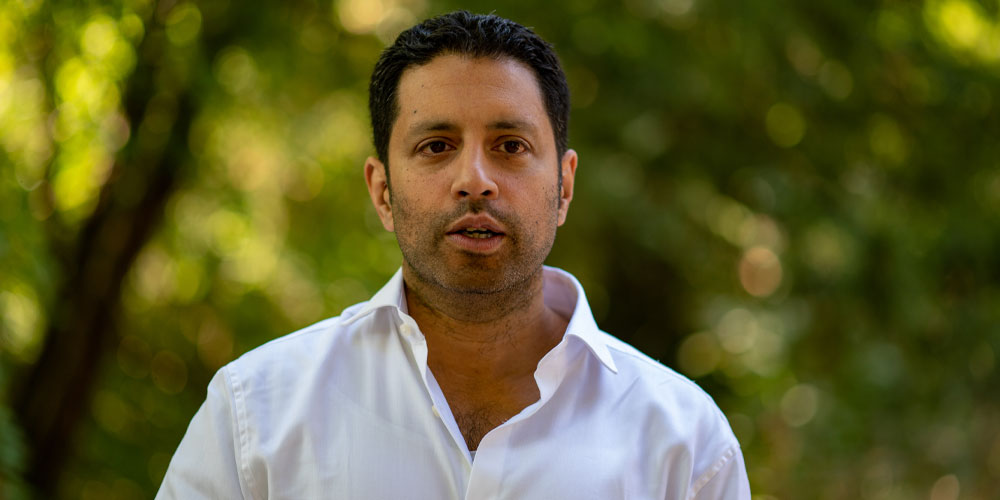With the new duties outlined in the Higher Education (Freedom of Speech) Act set to come into effect from 1st August 2024, the independent regulator of higher education in England has been setting out plans for a proposed free-to-use complaints scheme for students, staff and visiting speakers who feel their speech rights have been breached.
Prof Arif Ahmed, a former FSU Advisory Council member and now the Office for Student’s (OfS) new Director for Free Speech and Academic Freedom has just released a video calling for students in England and Wales to share their views on those proposals.
📣 Students, we want to hear what you think
— The Office for Students (OfS) (@officestudents) February 17, 2024
Share your views on our proposals for a new free speech complaint scheme and approach to regulating relevant SU's
Register for our online events to hear more: https://t.co/w9zmIJ0oDy
Respond to our consultations: https://t.co/WJjouAgutQ pic.twitter.com/geqFS1hzvj
The complaints system, which will be overseen by the new OfS Director for Free Speech and Academic Freedom role is one of two new enforcement mechanisms created by the legislation, and will allow aggrieved parties to make a complaint to the regulator if they feel a higher education provider (HEP) or students’ union has failed to secure freedom of speech for them.
In situations where the OfS route fails to resolve any given case satisfactorily, a new statutory tort was also introduced, whereby students and academics will, as a last resort, be able to sue universities in the County Court if their speech rights are breached.
Last December, Arif Ahmed, former Advisory Council member of the FSU and now the OfS’s ‘free speech tsar’, gave details about the free speech complaints procedure.
Speaking to journalists, Arif confirmed that academics, students and visiting speakers will from August be able to bring cases to the OfS without having to pay.
Arif also said that where complaints are found to be justified, universities could face fines or other sanctions and that the outcome of complaints – whether they are found to be justified or not – will be published alongside the OfS’s reasoning on why it reached a particular decision. Fines could be in the millions of pounds.
This vital piece of legislation is something the FSU has been campaigning for over the past three years.
We lobbied for the Bill when the Government was weighing up whether it was needed, advised the Government on what to include in it, defended it from critics in both Houses of Parliament, helped to amend it and, finally, mobilised our allies in Parliament to get it over the line.
It’s therefore all the more heartening to see how some of the arguments we made during the legislative process are now filtering down into the OfS’s on-the-ground proposals regarding what it describes as “free speech claims”.
Last year, when the House of Lords rejected Clause Four, which created the statutory tort mechanism and effectively gave the legislation’s free speech duties teeth, we swung into action, contacting all the MPs we knew, writing to the Education Secretary and her ministers, and urging academics who support the tort to write to them too.
As a result, Claire Coutinho, the then Under Secretary of State for Education and the minister responsible for the Bill, ultimately restored the tort.
But we weren’t content to leave things there, and managed to convince the government to amend Clause Four such that in instances where an academic or student sues an HEP or students’ union on the basis that a breach of their speech rights has led them to suffer ‘loss’, that term should be understood to encompass not just pecuniary, but other subtler forms of loss (e.g. humiliation, loss of reputation – or even, as in the case of City University v Laura Favaro, restriction of access to research data with all the attendant detriment to career thus generated).
The rationale for this amendment to the statutory tort was of course that campus cancel culture constitutes an insidious phenomenon, its thin coils of narcissistic, middle-class affront well capable of creeping up from the academy’s intellectual basement, and demurely asphyxiating the career of a dissenting academic without ever having recourse to the payroll department.
You can read and respond to the OfS’s consultation document by clicking here. Although the OfS is particularly interested in hearing from students, staff, students’ unions representatives and leaders of HEPs, it does also make clear that it welcomes responses “from anyone with an interest in freedom of speech in English higher education”.







